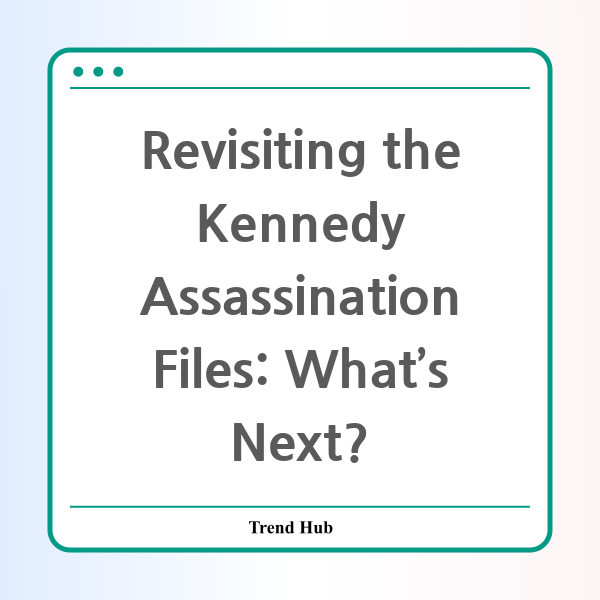* This website participates in the Amazon Affiliate Program and earns from qualifying purchases.

As we stand at the precipice of history, the impending release of final secret files on the assassinations of pivotal figures like John F. Kennedy, Martin Luther King Jr., and Robert F. Kennedy is a moment filled with anticipation. What secrets do these files hold, and will they finally unveil the truth behind one of America’s darkest chapters?
The announcement from the highest office in the land has reignited long-standing conspiracies and the public's desire for clarity. This recent development promises a closer look into events that have mystified the American public for decades.
Since the tragic murder of President John F. Kennedy in 1963, the official narrative provided by the Warren Commission—that Lee Harvey Oswald acted alone—has failed to quell the skepticism of many Americans. Public trust in this version of events has eroded over the years, with polls consistently showing that over half the nation believes there was more than one person involved in the assassination.
Despite the original deadline for declassification having been set for 2017, delays have plagued the process. The significant backlog of information unearthed since then raises questions about what was regarded as sensitive or compromising to national security. The latest executive order has set a timeline for the director of national intelligence to devise a plan for the release of these crucial documents. The wait has only fueled the fire of conspiracy theories and speculation.
Moreover, it is not just JFK's assassination that remains clouded in mystery. The murders of MLK and RFK, which occurred just five years apart, also share the shadows of unanswered questions. The recent acknowledgment from the Kennedy family and advocates for MLK’s family highlights a collective yearning for transparency and truth.
One of the most intriguing aspects of this potential release is the prospect of uncovering the yet undisclosed information from the CIA regarding RFK's assassination. With evidence suggesting the CIA had been monitoring Oswald prior to JFK's death, the content of these files could bring new light to the agency's involvement—or lack thereof—concerning the protection of these public figures.
Furthermore, the consideration by MLK’s family to delay the release signals a complex interplay of personal tragedy and national history. Their request to review the files before the public is not just about uncovering the truth but also about respecting the memory of their loved ones. The arguments for and against the release of classified information intertwine the personal and the political.
As we approach the deadline for the release of these pivotal files, the question remains: will they provide the definitive answers we seek, or will they add yet another layer to the complex narrative surrounding the assassinations of JFK, MLK, and RFK?
We stand on the threshold of potentially monumental revelations that could either substantiate decades of conspiracy theories or affirm the lone gunman narrative. Regardless of the outcome, the discussions these documents will inspire are bound to resonate for generations to come.
In conclusion, the release of these final files may not merely scratch the surface of the past but plunge us into a deeper understanding of a tumultuous time in American history—one that remains an indelible part of our national consciousness.
* This website participates in the Amazon Affiliate Program and earns from qualifying purchases.